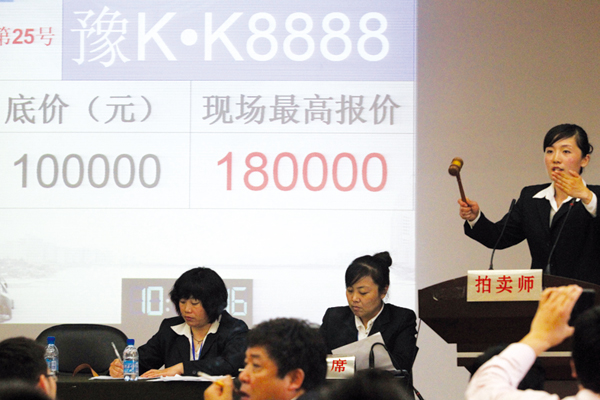Symbols, superstition and playing the numbers game
 |
|
A license plate ending in 8888 costs 180,000 yuan to win a bid at an auction held in Xuchang, Henan province. Niu Shupei/For China Daily |
"We begin to treat symbols as the things themselves. So if you have eight with you on a license plate or in an address, it feels like having prosperity itself with you."
Amid China's growing economic wealth and people's scramble for a slice of the pie, such beliefs have become even more entrenched. Acquiring lucky numbers, researchers say, provides people with a sense of security and hope in the face of huge challenges to achieving success.
Chiu Chi-Yue, a social psychologist and business school professor at Singapore's Nanyang Technological University, calls this the belief in "negotiable fate". The term, he says, refers to the acceptance of one's fate as fixed and one's luck as malleable, which helps its subscribers remain hopeful in their pursuits.
"Although people cannot alter their fate, 'changing one's luck' through acquiring commodities associated with lucky numbers is within one's control," says Chiu, who has been studying this phenomenon for five years.
"As long as life's outcomes are believed to be determined jointly by one's fate and one's luck, people can maintain faith in lucky numbers' efficacy in achieving their valued goals."
The downside of this practice, he says, is that it can direct people's attention from more rational ways of overcoming obstacles and managing risks, like purchasing health insurance, seeking mentoring at work or accepting relationship counseling.
In matters of the heart, it turns out that Xiao Fan's pre-Valentine's Day proposal last year was all for show - a beautiful dress and event manufactured to put Chimelong Park in the headlines.
This is another problem with lucky numbers: They have gained such power in China that they can be exploited for commercial gain.
Niu Meng contributed to this report.
















